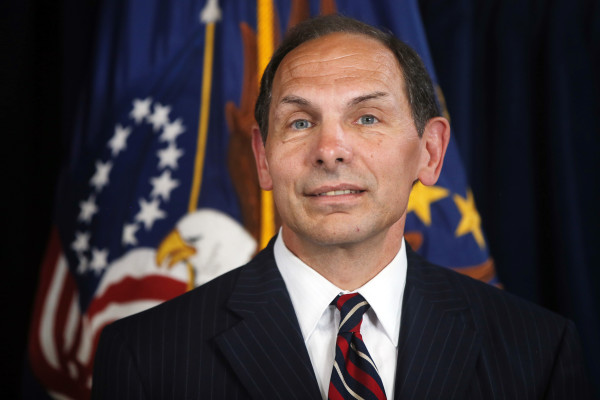

On Tuesday, the Senate will take up the nomination of Robert McDonald as Secretary of the Department of Veterans Affairs. The highly regarded former CEO of Procter & Gamble, one of the largest and most trusted consumer goods companies in the world, and former infantry captain in the 82nd Airborne, will undoubtedly face a severe grilling from lawmakers.
If confirmed, McDonald will be faced with a fearsome task: Reforming systemic dysfunction and mismanagement at the VA, an organization that has a long history of resisting change, and has been embroiled in a scandal that has grown worse by the week.
Here are some of the questions he is likely to face, and the background behind them.
1. Former VA Secretary Eric Shinseki resigned, in part, because he believed mid-level managers were truthfully reporting wait times, when in fact they were lying about them. How will you verify the accuracy of the data your subordinates provide you?
The heart of the scandal involves VA employees manipulating data in order to make their departments performance look better, often by a wide margin. The original complaints about fraudulent wait lists and “ghost” patients have since moved on to accusations that the much-criticized disability backlog numbers have been gamed as well.
2. Do you think VA employees and administrators who willfully lied about appointment wait times and who retaliated against whistleblowers should be promptly terminated? If so, how do you plan to make this happen?
Beyond the data manipulation are claims by whistleblowers that they faced systematic retaliation when they stepped forward to report problems with the VA system. Acting VA Secretary Sloan Gibson has said that any employee found guilty of retaliation will be let go, but arcane civil service rules mean termination proceedings can drag on for months, even years.
3. Do you feel the VA’s problems stem from a lack of money? If so, how do explain the fact that VA has had hundreds of millions more in medical care funding than it could spend every fiscal year since 2010?
Gibson has asked Congress for $17.6 billion in additional funding over the next three years to hire more doctors. Rep. Jeff Miller, House Veterans Affairs Committee chairman, has criticized the idea, saying “it would be an act of budgetary malpractice to blindly sign off on the request.” Miller told Task & Purpose last month that “a lot of people say throw more money at the system, throw more people at the system, and I say that is no way to get a solution. The VA, and especially the VHA, have more money than they can spend in a years’ time.”
4. Do you think the VA has become too bureaucratic?
The VA is an enormous organization, with a budget of $163.9 billion and over 300,000 employees, it ranks second to the Department of Defense as the largest federal agency. Some have argued that the organization is so large as to be impervious to reform. The Arizona Central Republic, the paper that first broke the Phoenix VA wait list story, argued that the VA should focus on specialized veteran care issues and rely on the private sector to cover the rest.
What would you ask McDonald if you had the opportunity to put forth one question?
Stephen Carlson served two tours in Afghanistan as an infantryman with the 10th Mountain Division. He lives in Washington, D.C. Follow him on Twitter.
